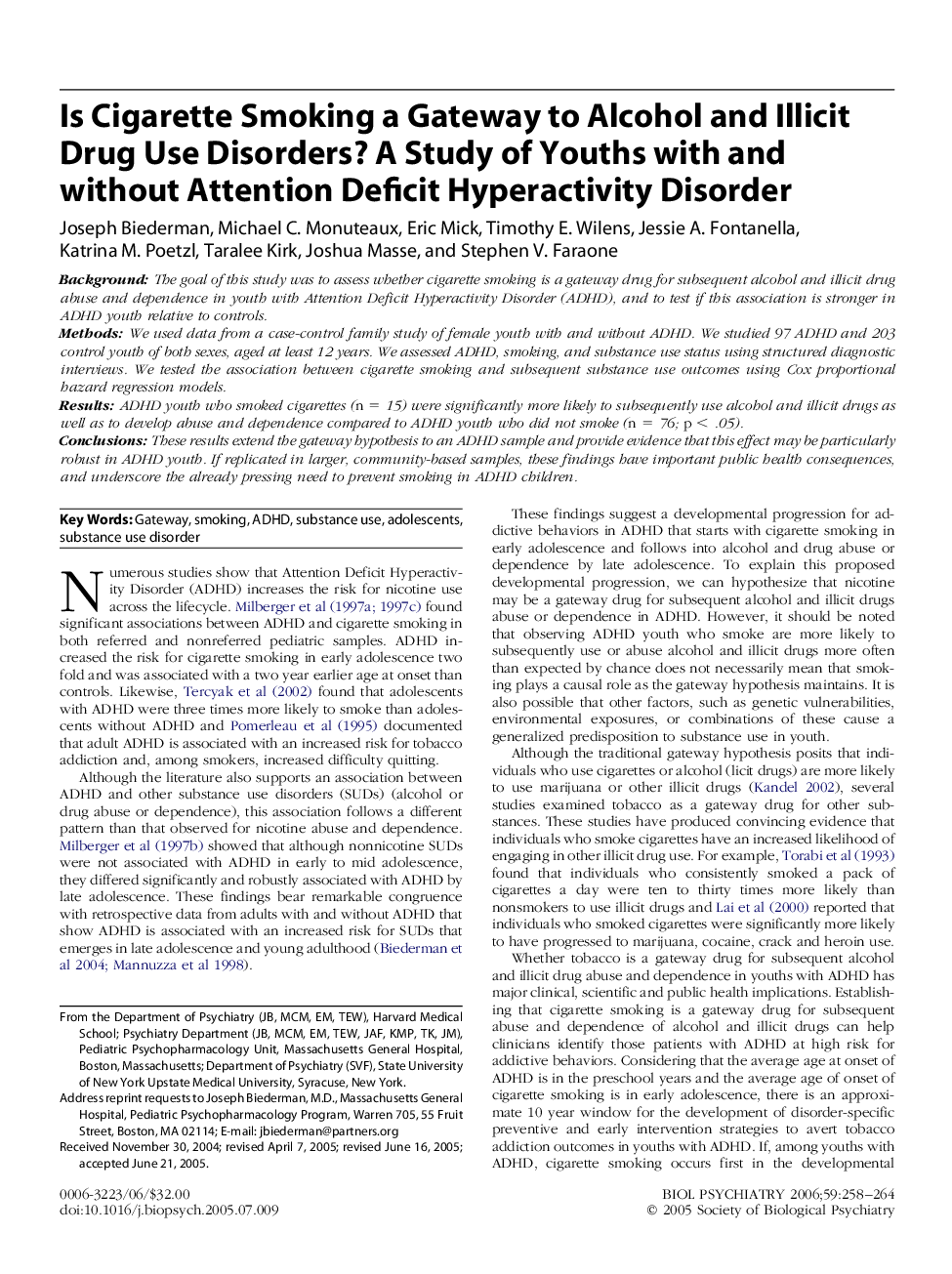| Article ID | Journal | Published Year | Pages | File Type |
|---|---|---|---|---|
| 4181366 | Biological Psychiatry | 2006 | 7 Pages |
BackgroundThe goal of this study was to assess whether cigarette smoking is a gateway drug for subsequent alcohol and illicit drug abuse and dependence in youth with Attention Deficit Hyperactivity Disorder (ADHD), and to test if this association is stronger in ADHD youth relative to controls.MethodsWe used data from a case-control family study of female youth with and without ADHD. We studied 97 ADHD and 203 control youth of both sexes, aged at least 12 years. We assessed ADHD, smoking, and substance use status using structured diagnostic interviews. We tested the association between cigarette smoking and subsequent substance use outcomes using Cox proportional hazard regression models.ResultsADHD youth who smoked cigarettes (n = 15) were significantly more likely to subsequently use alcohol and illicit drugs as well as to develop abuse and dependence compared to ADHD youth who did not smoke (n = 76; p < .05).ConclusionsThese results extend the gateway hypothesis to an ADHD sample and provide evidence that this effect may be particularly robust in ADHD youth. If replicated in larger, community-based samples, these findings have important public health consequences, and underscore the already pressing need to prevent smoking in ADHD children.
